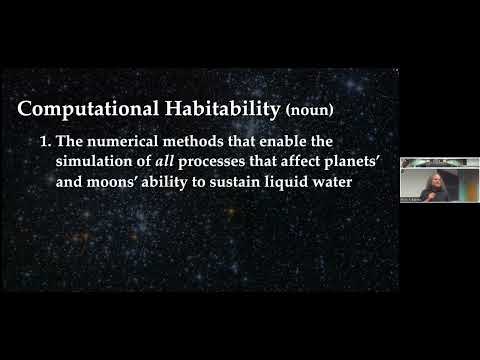Description:
Save Big on Coursera Plus. 7,000+ courses at $160 off. Limited Time Only!
Grab it
Explore the fascinating realm of computational habitability in this 37-minute lecture presented by Associate Professor Rory Barnes from UW Astrobiology. Delve into various aspects of planetary science and astrobiology, starting with atmospheric processes such as water photolysis and hydrogen escape. Examine the interior dynamics of planets, focusing on the thermal, magnetic, and volatile evolution of Venus. Investigate surface conditions, including ice coverage on Earth-like exoplanets. Learn about planetary system dynamics, specifically orbital evolution in resonance. Discover the intricacies of planets orbiting tidally evolving binary stars and the obliquities of Teegarden's Star's planets. Conclude with an analysis of the history and habitability of the LP 890-9 planetary system. Gain valuable insights into the computational methods used to assess the potential habitability of various celestial bodies and planetary systems.

Computational Habitability
Add to list
#Science
#Biology
#Astrobiology
#Astronomy
#Exoplanets
#Planetary Science
#Celestial Mechanics
#Orbital Dynamics